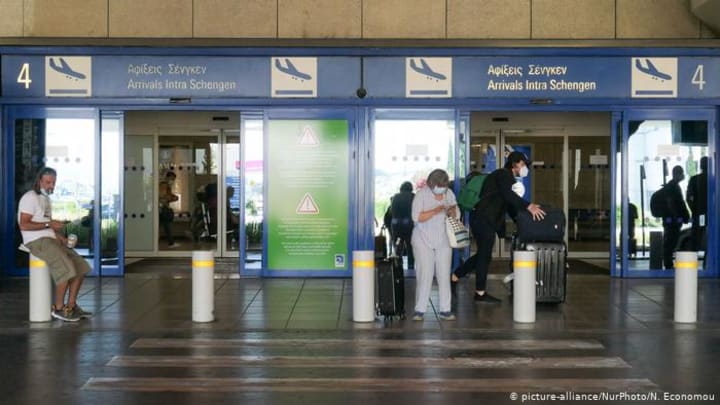EU Agrees to Open Borders but bans travelers from the United States and other listed countries from entry into the European Union
The European Union finally acted on this much-debated issue of which countries should be allowed entry into the EU and those that should be kept out until further notice, effective from July 1, 2020.

It was a difficult and prolonged negotiation as EU member states debate who should be allowed and the best way to reopen their countries to non-European Union travelers. This was a last-ditch effort to save EU countries that largely depend on tourism revenues.
Greece pushed so hard on this tourism issue and went as far as saying it would unilaterally reopen its country to US travelers. Part of the reason is that Greece as a country has lost much revenue from tourism. In the end Greece was persuaded to go along with the rest of the EU member-states with respect to the list of countries banned from entry into the European Union effective July 1, 2020, until they meet certain Coronavirus imposed requirements.
Among countries against opening the EU up to non-EU tourists was Spain, which was very concerned with the possible second wave of COVID-19 infections now manifesting in many countries of the world such as the United States. When Spain was removed from the skeptical list and added to the list of countries backing the plan the EU achieved the needed majority for the travel restrictions to be passed. A total of 27 countries supported the EU travel ban.
It’s official. The European Union has agreed to open its borders following the COVID-19 lockdown. According to the EU Council “residents of Andorra, Monaco, San Marino and the Vatican” should be considered as part of the EU with regard to its travel recommendation made here.
However, there are restrictions on certain countries that do not meet the minimum Coronavirus infection rate requirement. Among the banned countries from entry into the EU includes the United States, Brazil, Russia and India. Many see this ban as an open indictment of Coronavirus strategies of countries like the United States which lacks a national leadership resolve and mandatory approach for dealing with COVID-19 infections.

The EU says their ban is an “exercise of self-responsibility” in the wake of surges in Coronavirus infections around the world. One common denominator among banned countries from entry into the European Union includes factors like coronavirus surges resulting in new cases of COVID-19 infections. The United States, Brazil, Russia, and India are among the countries with the largest and rising Coronavirus cases in the world.
The following countries have been granted entry into European Union- Australia, Canada, Japan, Algeria, Georgia, Montenegro, Morocco, New Zealand, Rwanda, Serbia, South Korea, Thailand, Tunisia, and Uruguay. Chinese visitors are allowed to enter the European Union if China allows reciprocal entry of EU countries.
The decision to allow these countries into the European Union was reached in consideration to some met criteria including the number of new Coronavirus cases during a 14-week period, should be close to or below EU average. Those countries must also show a “stable or decreasing trend of new cases over this period”
According to the EU, their member states will be responsible for implementing these recommendations. The list of Countries permitted to travel to the EU is technically a recommendation list, EU stresses that member states reserves the final right to decide on mechanisms for easing the restrictions.
The existing EU’s travel ban went into effect in mid-March and was extended to non-EU Schengen member states such as Switzerland, Norway Liechtenstein, and Iceland. The countries included on the ban-list will be updated every 14 days according to the official release directive. According to Schengen, “United Kingdom citizens, as well as their family members, are exempted from the temporary travel restriction, and they will be treated in the same way as European Union nationals until the end of the Brexit transition period, on December 31, 2020.”





Comments
There are no comments for this story
Be the first to respond and start the conversation.